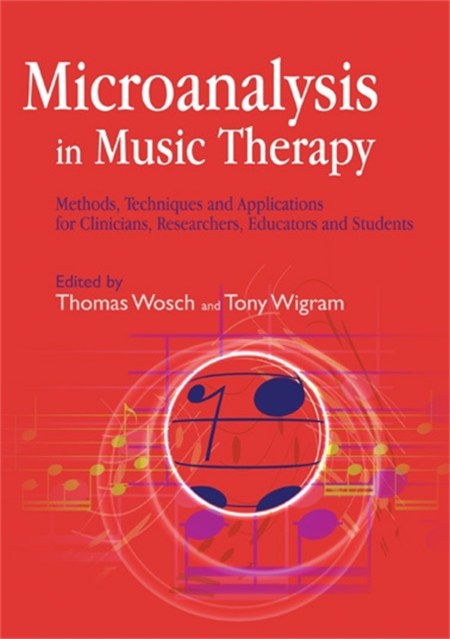Microanalysis in Music Therapy
On sale
15th July 2007
Price: £40
In the context of music therapy, microanalysis is the detailed analysis of that short period of time during a music therapy session during which some kind of significant change takes place. These moments are crucial to the therapeutic process, and there is increasing interest amongst music therapists in understanding how they come about and whether there are ways of initiating them.
The contributors to this groundbreaking book look at methods of micro process analyses used in a variety of music therapy contexts, both clinical and research-based. They outline their methods, which include using video and audio materials, interviewing, and monitoring the client’s heart rate, and also give examples of the practical application of microanalysis from their clinical experience, including work with clients who have psychiatric illness, autism and other conditions.
Microanalyses in Music Therapy provides a wealth of important theoretical and practical information for music therapy clinicians, educators and students.
The contributors to this groundbreaking book look at methods of micro process analyses used in a variety of music therapy contexts, both clinical and research-based. They outline their methods, which include using video and audio materials, interviewing, and monitoring the client’s heart rate, and also give examples of the practical application of microanalysis from their clinical experience, including work with clients who have psychiatric illness, autism and other conditions.
Microanalyses in Music Therapy provides a wealth of important theoretical and practical information for music therapy clinicians, educators and students.
Newsletter Signup
By clicking ‘Sign Up,’ I acknowledge that I have read and agree to Hachette Book Group’s Privacy Policy and Terms of Use
Reviews
Microanalysis in Music Therapy provides ample evidence of the science and technology behind music therapy, and helps to bust the myth that music therapy means having a sing-along with your patients. Microanalysis in this context refers to the detailed analysis of events in music therapy sessions using verbal, musical and/or video data that can then be used to explore and document significant changes that occur in the process of therapy. Each chapter introduces a model or technique for studying one or more processes in music therapy and a context for its application. The applications range widely from developmental disorders, brain injuries and mental health in children and adults, to tools for assessment and education of trainee music therapists. The book is directed at practising music therapists, researchers, educators and students however, I think school music teachers, researchers and health professionals from a range of disciplines will find much of interest here as well.
There is clarity from each author's contribution that inspires the reader not only to want to look further but also to use and adapt their individual thinking in practice. Wosch and Wigram have provided us with a clear and useful text that will be invaluable for practising music therapists, researchers, educators and students.

